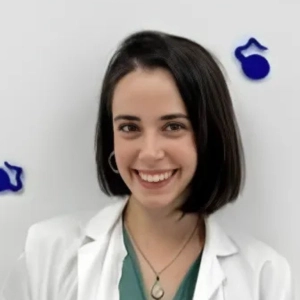
Ana Carbajo Una
Rey Juan Carlos University Hospital, SpainPresentation Title:
Chronology of gene editing in human embryos: From CRISPR-Cas9 technology to new improved strategies
Abstract
The possibility of genetic manipulation on the human germline has emerged in recent years, thanks to the huge advancement in genetic engineering techniques. Among the edition systems available nowadays, the CRISPR/Cas9 technology has been established as the tool of choice due to its many advantages: greater cutting efficacy, versatility and affordability. Thus, the first work on gene editing in human embryos for therapeutic purposes was presented at the beginning of 2015 using this system. Since then, many investigations have been carried out in different laboratories mainly located in the USA and China. Recently, in December 2020, Zuccaro et al. demonstrated that the use of the CRISPR / Cas9 system for correcting point mutations in human embryos can generate partial or complete chromosomal losses; thus originating possible aneuploidies and abnormalities in development. Faced with this problem, the new Base and Prime editing technologies have emerged as new alternative strategies, based on an improved CRISPR system and with a very promising future in the treatment of monogenic diseases. However, genetic editing of embryos is still very far from a possible transfer to clinical practice and many more studies are necessary to deepen the safety of these technologies.
Biography
Ana Carbajo completed her BSc in Biotechnology from University of Salamanca in 2019 and her MSc in Biotechnology of Assisted Human Reproduction from University of Valencia in 2022. Since then, she has been working as clinical embryologist in both public and private clinics in the Community of Madrid, always being interested and committed to research in the field, especially concerning genetic issues.


